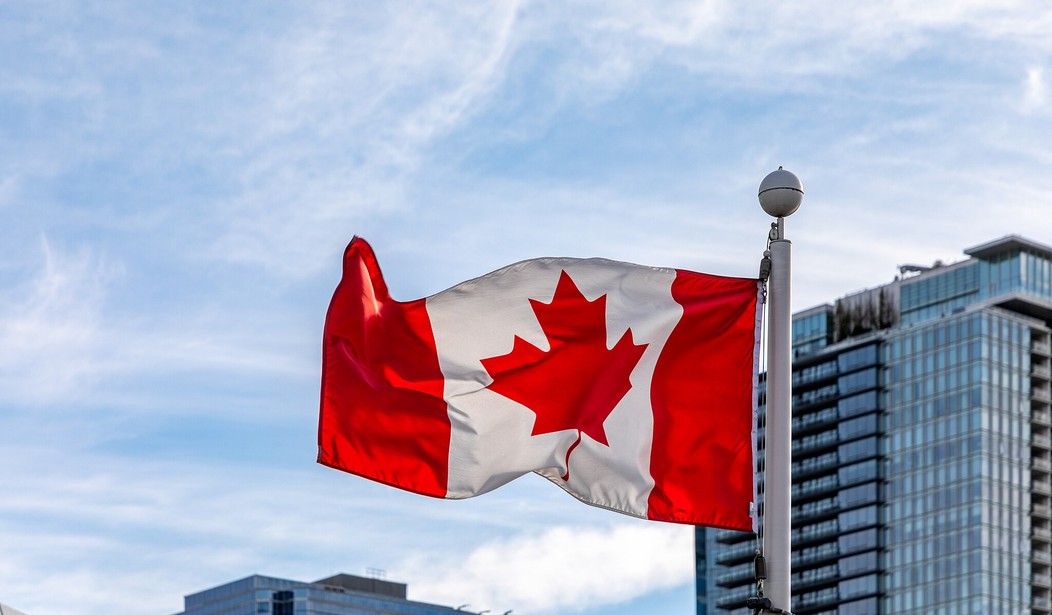We often focus so much on the border between the United States and Mexico that it overshadows the one we share with our Canadian neighbors. The recent arrest of a suspected terrorist is a sobering reminder that it can be just as big of a national security threat. According to Immigration and Customs Enforcement (ICE), 41-year-old Mohammed Hasan Abdellatif Albana was captured in Lynden, Washington. He was identified as a "known or suspected terrorist," according to Fox News. While it's not clear when he was apprehended, ICE deported him back to Jordan on November 15.
A single terrorist crossing into the U.S. could cost hundreds, if not thousands, of people their lives. But some want to downplay the threat, ranging from the mainstream media to the Canadian prime minister.
The New York Times addressed the situation at the Canadian border last week in a piece called "Why Is Trump Identifying the U.S.-Canada Border as a Problem?" The subheading reads, "Arrests for illegal crossings from Canada spiked in the last fiscal year, but remain a fraction of the number of those from Mexico." At least they can kind of sort of admit that the Canadian border is a growing problem, but when the media seemingly tries to downplay any type of crime by saying only a certain number of people are committing it or it's worse elsewhere, I want to pull a JD Vance and say "'Martha, do you hear yourself?"
While it may be true that illegal crossings in general in Canada are only a fraction of what they are in Mexico, Brian Lilley points out in a column in the Toronto Sun that the number of terror suspects apprehended is far greater up north. According to statistics provided by U.S. Customs and Border Patrol, in the last fiscal year alone, 358 potential terror suspects were encountered at the Canadian border, compared to just 52 at the Mexican one. The year before, 484 potential terror suspects were stopped coming in from Canada, compared to just 80 from Mexico; in 2022, the numbers were 313 and 67 for Canada and Mexico, respectively.
Interestingly, in 2021, the opposite was true. Only 54 suspected terrorist came in from Canada, while 103 came in from Mexico. Lilley states that this coincides with "the Trudeau government dramatically opening up the temporary foreign workers program, international student admissions and the falling apart of the refugee system." Of course, we all know by now that Justin Trudeau himself announced back in October that he made a mistake with his overzealous immigration policies and plans to slow things down in Canada next year.
In a recent interview with 7 News in Watertown, New York, President-elect Donald Trump's border czar, Tom Homan, said, "The problem with the northern border is a huge national security issue." He also said more Border Patrol agents are required at the Canadian border, "catch and release" must end, and Trudeau must be willing to work with Trump and enforce border laws from his end.
Trump himself has also changed his language about border security to include Canada. Last week, he posted on Truth Social, "As everyone is aware, thousands of people are pouring through Mexico and Canada, bringing Crime and Drugs at levels never seen before."
Trump also threatened hefty tariffs on Canadian goods if Canada doesn't cooperate with his border security demands, which prompted Canadian Public Safety Minister Dominic LeBlanc to tell reporters last week that "additional investments" at the border will be made, though he didn't mention a specific plan.
On Friday, Trudeau visited Mar-a-Lago, though sources told the CBC that there was a heavy "focus on fentanyl" during discussions about the border. No word on whether or not they discussed the rise in suspected terrorists crossing into the U.S. However, the Associated Press reported that Kirsten Hillman, Canada’s ambassador to the United States, said on Sunday that "Prime Minister Justin Trudeau was successful in getting President-elect Donald Trump and key Cabinet nominees to understand that lumping Canada in with Mexico over the flow of drugs and migrants into the U.S. is unfair."
Fair or not, an unsecured Canadian border still poses a threat to the United States, regardless of how it compares to Mexico. Hopefully, Trump, Homan, and Trudeau will find a way to work together to increase its security in 2025 and keep the people who want to harm us out.










Join the conversation as a VIP Member